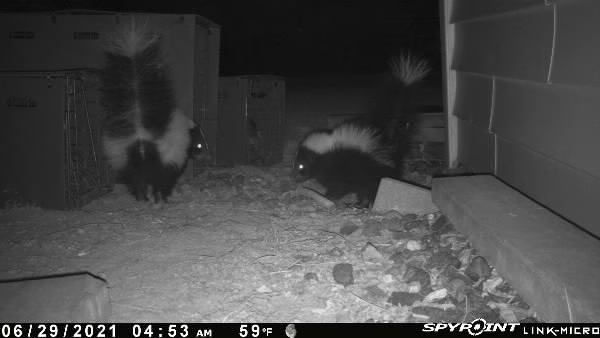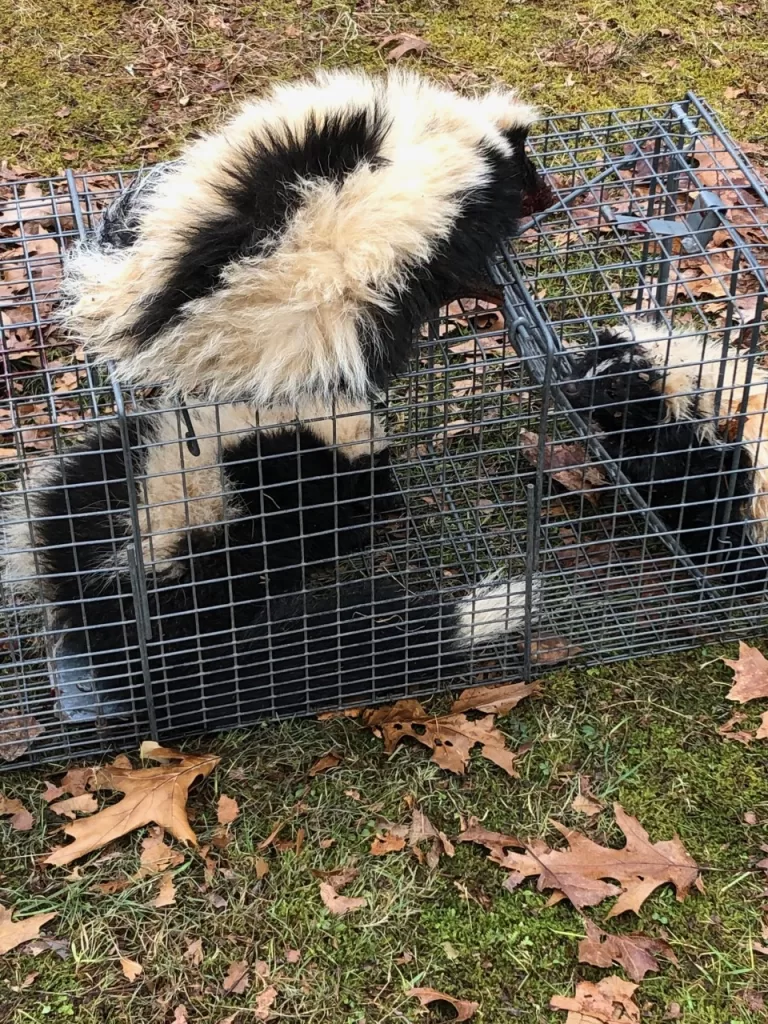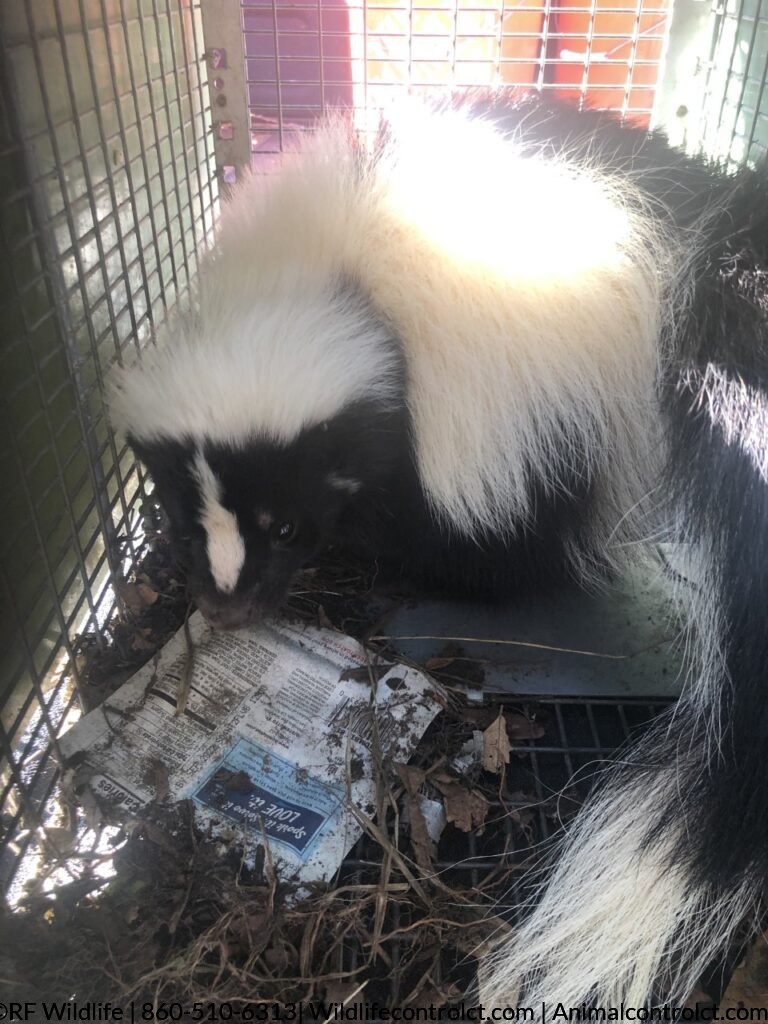Dealing with a skunk infestation can be challenging, but taking swift action is essential. Contacting a professional wildlife removal service is crucial to ensure the safe removal of skunks. At RF Wildlife Removal service, we offer humane solutions for skunk removal, in compliance with state laws. We can also identify entry points and provide exclusion services to prevent future infestations. Contact us today for effective and safe skunk removal solutions.
Skunks are known for their distinct odor and playful antics, especially when they are young. Baby skunks, also known as kits, are adorable little creatures that spend most of their time exploring their surroundings. Skunks have a gestation period of approximately 7-10 weeks and usually give birth to litters of 4-7 kits.
Early Life of Baby Skunks: Dependency on Mother and Exploring the Den
Baby skunks are born blind and deaf, weighing only a few ounces. After birth, they spend their first few weeks of life inside the den with their mother. The den is usually located underground or in a sheltered area, providing warmth and protection for the vulnerable kits. The mother skunk ensures the den is kept clean and safe for her young by regularly removing waste and debris.
During their first few weeks of life, the kits are completely dependent on their mother for nutrition, relying on her milk for sustenance. As they grow, their eyes and ears start to develop, and they become more mobile, beginning to crawl and explore their surroundings. At around 3-4 weeks old, the kits start to become more active and playful, though they still rely on their mother’s care and protection.
At around 6-8 weeks old, the kits are weaned off their mother’s milk and start to venture outside the den to explore their surroundings. They start to develop their sense of smell, which is crucial for survival in the wild. The mother skunk continues to watch over them, teaching them how to hunt for food and avoid danger.
Understanding the early life of baby skunks is important for anyone dealing with a skunk infestation. The best time for removal is during the summer months when the kits are almost weaned and exploring outside the den, as this is the best time to trap them.
Skunk Removal Strategies: Taking Action for a Safe and Skunk-Free Property
If you have a family of skunks living in or around your property, it’s important to act quickly to prevent the situation from escalating. The best time for baby skunk removal is during the summer months when the kits are almost weaned and exploring outside the den. Removing them during this time reduces the risk of separation anxiety and increases the likelihood of survival. There are several strategies for effective skunk removal. The first step is to identify the entry points where the skunks gained access to your property and seal them off. Ensure that no skunks are present. this can be done using a soft plug such as newspaper. This prevents them from entering your property in the future. Exclusion services, such as installing fences or barriers, can also be used to keep skunks and other wildlife away from your property.
Prevention and Professional Removal: The Importance of Hiring a Skilled Wildlife Removal Service
If you have a skunk infestation, it’s important to contact a professional wildlife removal service. Removing skunks can be dangerous, as they can spray a strong odor and even bite if they feel threatened. A professional wildlife removal service can provide humane solutions for skunk removal, ensuring the safety of both the skunks and the property owner. They can also help you identify the source of the problem and take measures to prevent future infestations.
In addition to skunk removal, there are also preventative measures you can take to keep skunks away from your property. Skunks are attracted to food sources such as garbage, compost, and pet food. Keeping these sources covered and inaccessible can help prevent skunks from being attracted to your property. You can also use natural deterrents such as planting strong-smelling herbs or installing motion-activated sprinklers.
Our Approach to Ensuring Safe and Skunk-Free Properties
At our RF Wildlife removal service, we pride ourselves on providing humane solutions for baby skunk removal. We understand that removing baby skunks requires a careful approach, and we take all necessary precautions to ensure their safety. It is not legal to relocate skunks in Connecticut, so any removal must be done in compliance with state laws. We can trap remove off-site and euthanize them or trap seal off the den and release on-site.
Once the baby skunks have been safely removed from your property, it’s important to take steps to prevent future infestations. Our technicians can help you identify the entry points where the skunks gained access to your property and seal them off. We also provide exclusion services to ensure that skunks and other wildlife cannot enter your property in the future.
In conclusion, if you need help with skunk removal or prevention, don’t hesitate to contact us today. We provide humane solutions for baby skunk removal and take all necessary precautions to ensure their safety. Remember that the best time for baby skunk removal is during the summer months when the kits are almost weaned and exploring outside the den.






